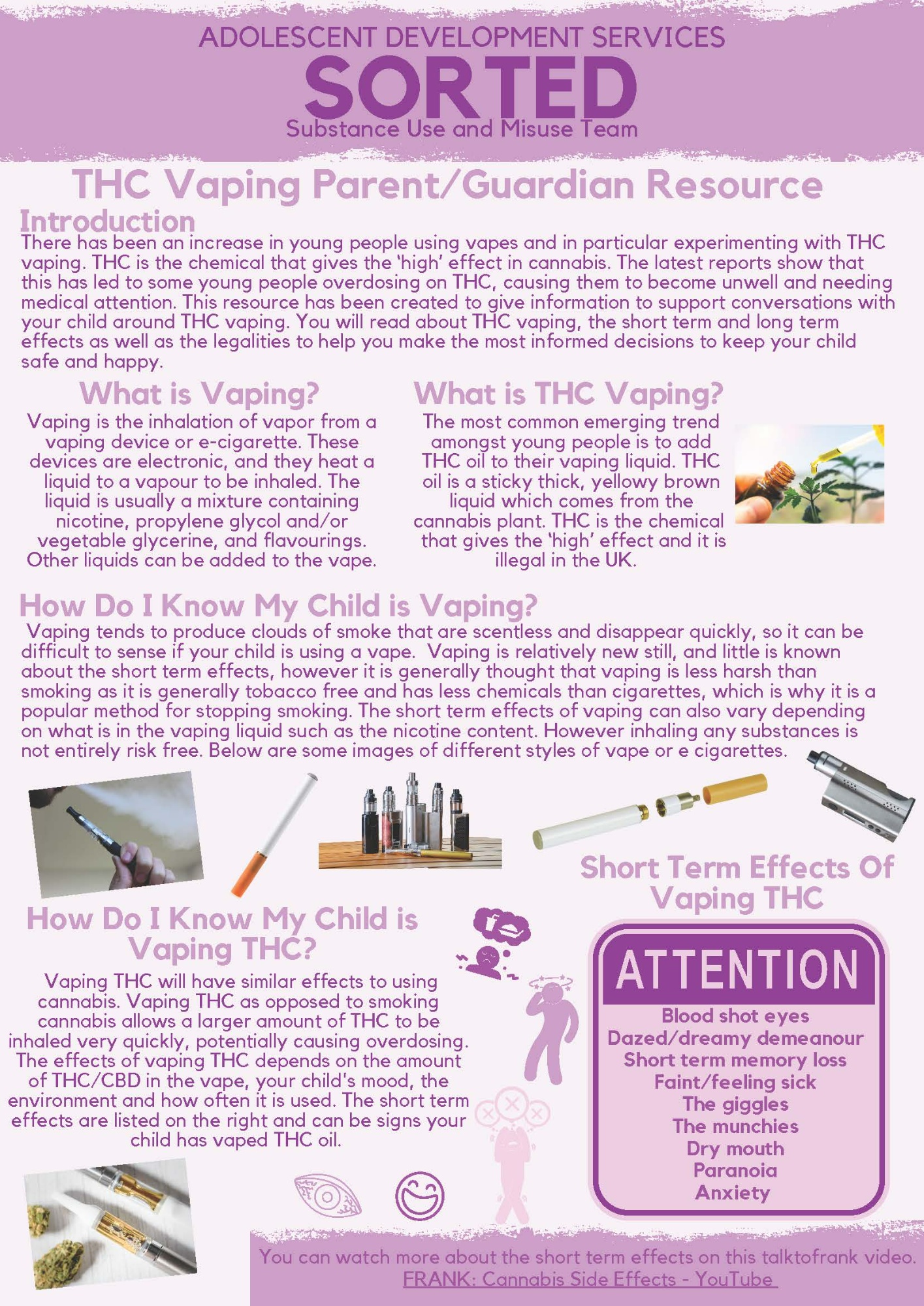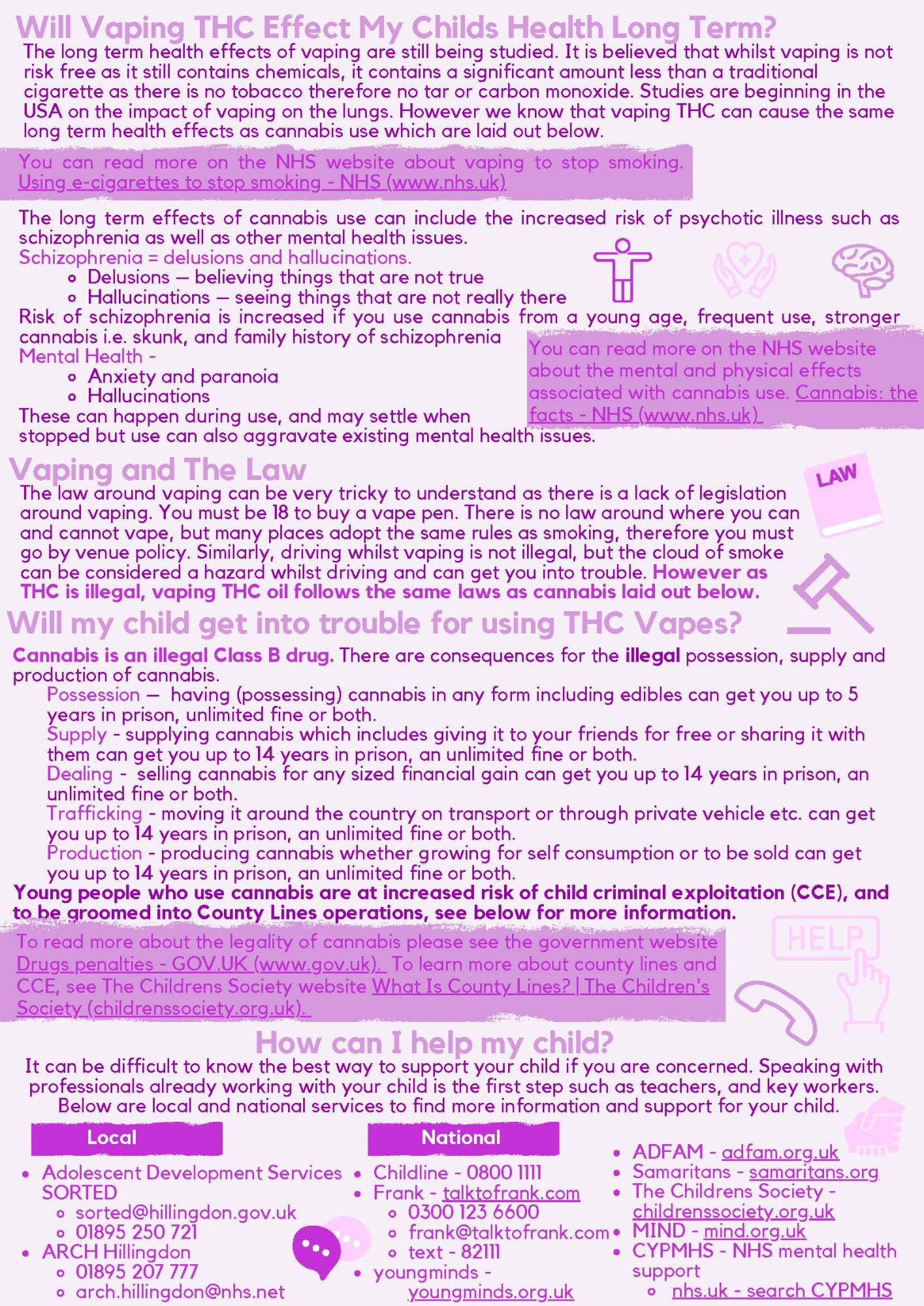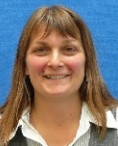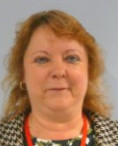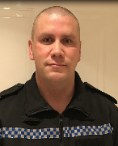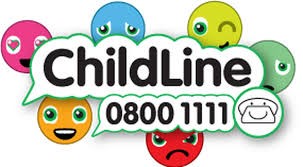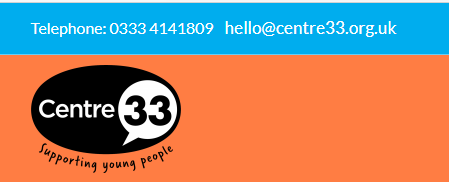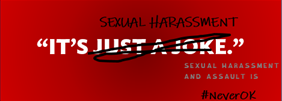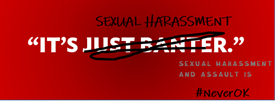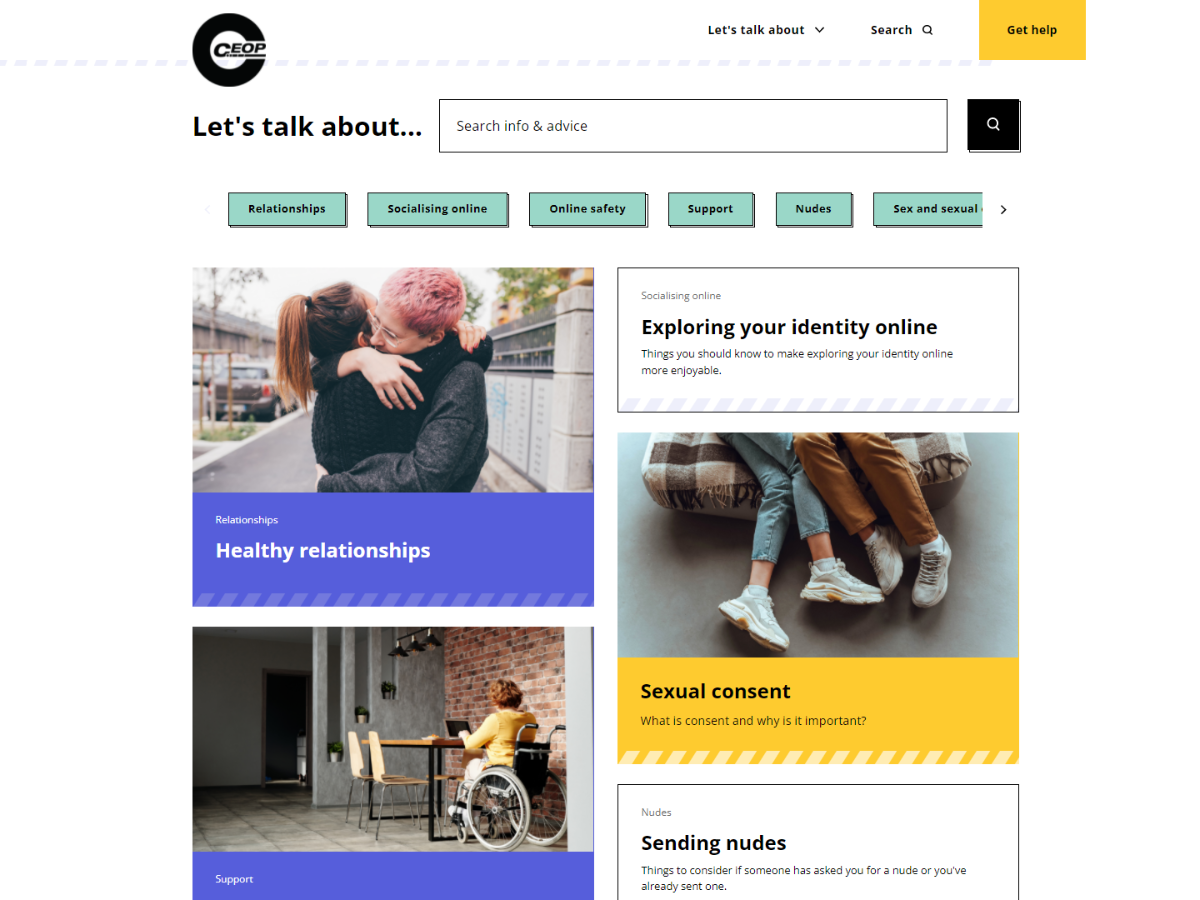Your wellbeing is a top priority at QKA and we understand the pressure of Academy life can sometimes feel over whelming. We want to encourage you to talk to someone about your feelings, to help put things into perspective and to help relieve some of those pressures.
There are lots of people in school who can help if you have any questions or concerns related to life in school or life outside of school.
Everyone in school has access to their Tutor, their Student Support Officer and their Progress Leader. You can talk to them about any worries that you have. They can also help direct you to someone who may be able to help further. You might also want to speak with a class teacher or another trusted adult in school who might be able to spend some time with you.
Other people in school who could help are:
|
|
Miss Roddis – her job is all about helping keep people safe. She is good to talk to if you’re worried about a situation in your life which means you might be at risk, or if you’re worried about a friend being at risk. She can speak to other professionals like social workers and police who also help keep people safe. Her office is D3 near the main reception, you can also leave a note in the post box on the wall. |
|
|
Mrs Heard – her job is to help with any medical advice or assistance you might need. If you don’t feel well or need to take medication in school then she can help and support you. Mrs Heard can also support with any sexual health questions or concerns and she can help you access the right support. The medical room is next to the canteen. |
|
|
Mrs Magnus – her job is to co-ordinate the support that is available to you from outside agencies like youth workers and mentors. She can meet with families who might need some extra support. Her office is down the Head Teachers corridor. |
|
|
PC Chris Baker – he is a Safer Schools Officer and his role is to help support staff and students if they have questions or concerns about our local community or with regards to keeping yourself and others safe. His office is in D5 (C/D block breakout area). |
Staff in SEND – There are staff here who can help talk with you about any problems you might have with your learning. They can help if you’re struggling with reading, writing or general working in lessons.
Staff in EAL – These staff can help you with any problems you might have around learning English, getting used to having lessons in English or developing your current skills. They can help with translations and communication with your parents.
|
|
Sometimes you might want to speak to someone from outside of school about your worries and concerns. We have put some really good links below for agencies who we know are really useful. Click on the pictures to take you directly to the website
Sexual Harassment
|
|
|
UNWANTED ATTENTION IS HARASSMENT

What is Sexual Harassment?
Sometimes, people who harass and bully do it with sexual comments or actions. This is called sexual harassment or sexual bullying. People who harass or bully use cruel comments, gestures, threats, or actions. They try to insult, demean, exclude, shame, or hurt others.
Sexual harassment and bullying include things like these:
- making sexual jokes, comments, or gestures
- spreading sexual rumours (in person, by text, or social media)
- posting sexual comments, pictures, or videos
- taking or sending sexual pictures or videos
- asking someone for naked pictures of themselves ("nudes")
- asking for sex or offering to have sex
- touching or grabbing someone in a sexual way
Sexual harassment and bullying can happen in person or online. But no matter where they happen, sexual harassment and bullying are not OK. There is no excuse for behaviours like these. And they are not the fault of the person who is being harassed or bullied.
If you or someone you know is going through this, tell a trusted adult.
‘All staff have a responsibility to provide a safe environment in which children can learn’ – KCSIE
Staff at Queen Katharine Academy all have the same strong commitment to our students that we will not tolerate, not condone or ignore sexual harassment of any kind and as staff we will challenge all forms of sexual harassment.
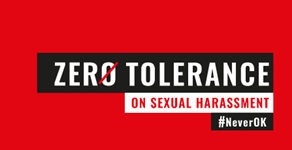
General Advice
www.childline.org.uk (0800 1111) - a free service that offers confidential advice and support to young people.
www.chums.uk.com - a Mental Health & Emotional Wellbeing Service for Children and Young People that provides therapeutic support in a variety of ways. CHUMS has developed a unique service delivery model to ensure that children and young people are able to access a service that supports their individual needs.
www.keep-your-head.com - a website that offers advice and support on a range of issues.
www.annafreud.org/on-my-mind/self-care - a website that offers strategies for students to help them manage their own wellbeing.
Emotional Wellbeing
www.kooth.com - free, safe and anonymous online mental health services for children, young people and adults. Kooth, from XenZone, is an online counselling and emotional well-being platform for children and young people, accessible through mobile, tablet and desktop and free at the point of use.
www.moodjuice.scot.nhs.uk - an online resource providing information to young people and professionals regarding emotional wellbeing.
www.papyrus-uk.org/help-advice/about-helplineuk (Tel: 0800 0684141 or text 07786 209697) - a service that can help young people deal with negative feelings.
www.cpft.nhs.uk - Cambridgeshire and Peterborough NHS Foundation Trust provide information about specialist mental health services, as well as mental health training opportunities.
www.minded.org.uk - Are you a parent or carer who is concerned about your child? Or perhaps you just want some hints and tips on parenting? MindEd for Families has online advice and information from trusted sources and will help you to understand and identify early issues and best support your child.
Self Harm
www.selfharm.org.uk/home - a project dedicated to supporting young people impacted by self-harm, providing a safe space to talk, ask questions and be honest about what is going on in their life.
Calm Harm - a new mobile app that provides tasks to help you resist or manage the urge to self-harm. Get started by setting your password so that it's completely private. You can personalise it if you wish, by choosing the background colour theme and deciding on whether you would like some company using a variety of friendly characters. Visit the App Store (ios) or Play Store (Android) to install the app.
Posters
We have gathered together some really useful posters for you to have a look through, some of these posters can also be found outside your year team offices and throughout the school building. Please help yourself to these hand outs.
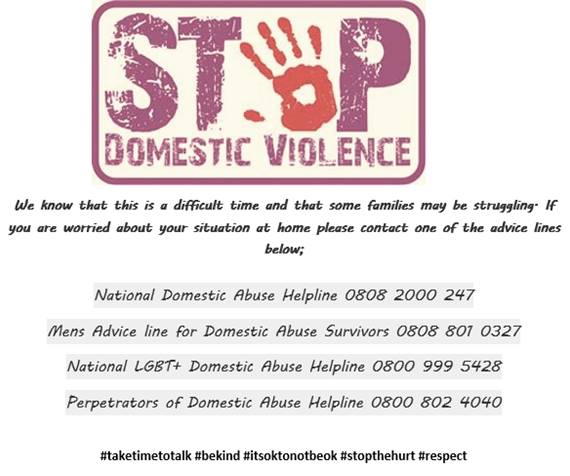
Thinkuknow
This year, many of us will be relying on tech over the festive period for entertainment and, most importantly, to keep in touch with friends and family.
Here are a few of our resources that you can share with parents, carers and children and young people to help them have a safer online experience over the winter break.
Being social online this December: a parent's guide
Access to new tech over the winter period can provide new opportunities for children and young people but also present risks.
Our guide for parents looks at how they can support their child to be safer online this season by focusing on 3 key areas: viewing, sharing, chatting and friending.
4 steps you can take to help children stay safer
Our new post take you through the importance of conversations with children and young people about communicating safely online, helping them to understand how to report anything worrying, and reminding parents and carers about setting up parental controls.
You'll also find examples of resources that you can use to build on these conversations and develop skills and knowledge in the new year.
You can keep up to date with the latest news from the CEOP Education team by following us on Facebook and Twitter. If you have any questions or feedback about our resources, get in touch with us at ceopeducation@nca.gov.uk.
#AskTheAwkward aims to help parents and carers have regular conversations with their children about online relationships and more. The resource includes three short films created in a social experiment style, with real parents and their children to capture their reactions to a range of questions.
Online Saftey
Remove A Nude Image Shared Online
It can be scary finding out a nude image or video of you has been shared online. If you're under 18 and a nude image or video of you has been shared online, you can report it and to request for it be removed from the internet. Follow the link below to find out more information or to make a report.
CEOP
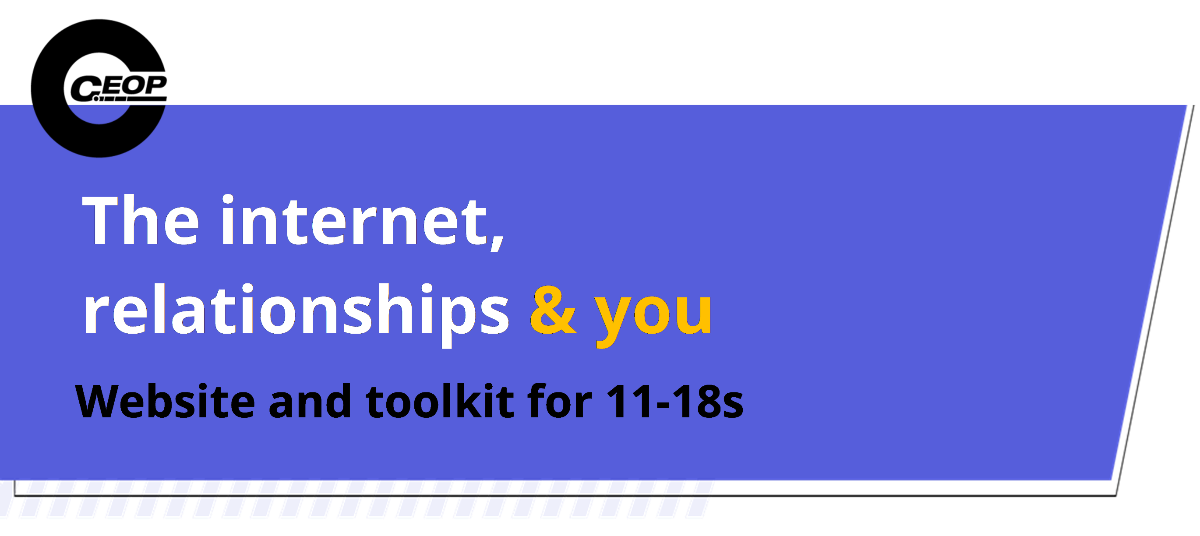
|
|
|
Vaping
